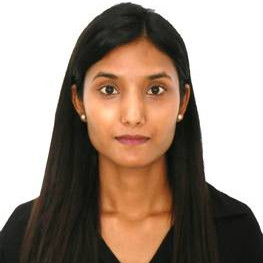Kathy Win
Biography Narrative
Kathy is Program Manager of Phandeeyar Innovation Hub’s Tech for Peace Program. In 2019, she received a full scholarship from Open Society Foundation and is studying MSc in Violence, Conflict and Development studies at SOAS, University of London. She started her career as a lawyer and programme officer with a local non-governmental organization in Mandalay in 2013. She is actively involved in Peace and Human Rights projects. She worked as a program trainer of the Institute for Political and Civic Education (iPACE) on Human Rights, TOT for civic education and organizational development in 2016. Since 2014, she has been actively involved in interreligious dialogue and interfaith programs in Mandalay.
She leads a social media fellowship program to empower CSO leaders to use social media more effectively, to reduce hate speech and disinformation among diverse communities. And also, she is working for a digital literacy program and social research to understand the digital culture in Myanmar and hate speech from 2016 to present. She is one of the alumni of Myanmar Young Leadership program at the Victoria University of Wellington in New Zealand. Her favourite motto is “peace begins with a smile”.
Interreligious Activities and Initiatives
Let’s Talk Let’s Share
The people of Myanmar lived under the military regime for over 60 years. Myanmar is a diverse country with over 350 ethnic groups and different religious groups lived together. According to the UNFPA (2016) report in Myanmar, the population is comprised of 87.9 % Buddhist, 6.2% Christian, and 4.3% Muslim respectively. After 2010 the government held an election and started the democratic transition. Since 2012 democratic transition, Myanmar faced a lot of conflict between Buddhist and Muslim communities. Because of misunderstanding, mistrust, a sense of insecurity and discrimination between each group, a politicized anti-Muslim movement, hate speech, and rumors have emerged strongly since the start of the transition and a series of incidents and violence across the country have occurred. Amnesty International (2017) stated that the government allowed to produce anti-Muslim statements and fake news in print and online even in state media.
The main underlying causes are Buddhist community fear of domination by Muslim populations and a long-term history of discrimination between religious and ethnic groups. Other factors are the competition in business between these majority and minority groups and for resources sharing and social inequality. The stereotyping of minority religious groups is one of the causes of leading to conflict. The impact of conflict is that an estimated 693,000 Rohingya people have been displaced to Bangladesh.
Myanmar is at an important period in its transition. Social media is playing an increasingly important role as key actors participate in the dialogue about national identity and political process related to peace. Several civil society organizations are interested in organizing campaigns to influence these dialogues. Many of these organizations, however, face serious capacity challenges and are under-equipped to address these communications challenges. Interfaith dialogues and awareness of youth about attitude of self control are the best solutions to address those problems. Those solutions are useful in Indonesia and Nigeria which faced the same situation like Myanmar. All inclusive dialogue improve mutual understanding and alternative to criticize justifying communal violence in Myanmar ( Phillip.D, 2014). In my opinion interfaith dialogues are useful for our community because Buddhist people are misunderstanding Islam . So we should exchange and learn what is the real faith, practice and cultural.
To address this problem, I will deliver Let’s Talk Let’s share training in Amarapura. This training is designed in particular to support 25 youth to understand diversity and pluralism and the importance of dialogue and to counter misunderstanding on minority groups by telling social story .They will collect social story in their community and participate in a storytelling campaigns to promote peace, tolerance and inter-communal harmony using a digital platform. They will get a network with campaigners from six different cities who are a member of Zagar Than Campaign supported by the Phandeeyar.

